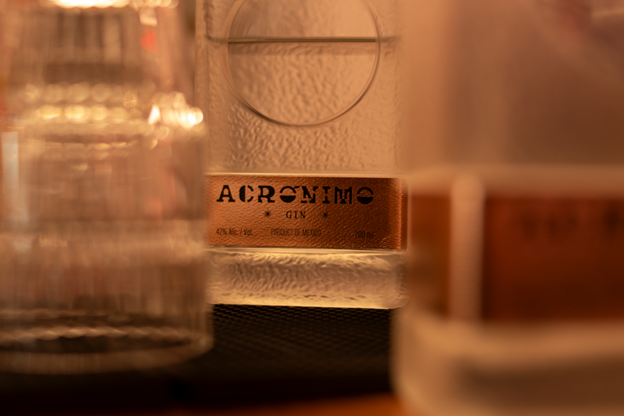How Gin Compares to Whiskey in Flavor Complexity

Regarding the realm of spirits, people are often split between the classics—gin and whiskey. While some advocate gin’s vivid botanical profile, others swear by whiskey’s deep, smoky warmth.
However, if we back off and really examine how gin tastes differently from whiskey in terms of flavor complexity, we may be shocked at the overlaps and differences.
Though sometimes written off as a simpler, cocktail-driven spirit, gin has a lot of subtlety that is simply different from whiskey. Built around juniper but layered with herbs, citrus peels, florals, and spices, its flavor can be just as complicated as the oak-aged appeal of whiskey.
It all comes down to our tastes and what we are searching for. In this blog, let’s get to the bottom of how gin compares to whiskey!
Table of Contents
Foundations of Core Flavor for Gin and Whiskey
Let’s begin with the foundations. Though some gins may start with fruit or sugarcane, both gin and whiskey start with neutral or basic alcohols derived from grains. But following distillation, their paths veer quite differently.
Aging in oak barrels gives whiskey complexity. That aging brings vanillin, charred wood notes, caramel, spice, and a lot of earthy depth. For instance, bourbon leans sweet and smoky.
Still Scotch? Often peaty and dry. Rye whiskey gives a strong kick of spiciness. This will give you a great understanding of how gin compares to whiskey.
Conversely, gin skips the aging process and starts flavoring immediately with botanicals. Although juniper is non-negotiable, distillers allow great creative flexibility here.
While another gin leans hot with cardamom and cinnamon, one gin may taste piney and bright with lemon zest. It’s sort of like choose your own adventure.
Examining Complexity More Closely
Many people believe complexity in spirits comes just with time. That is not really fair, though. The complexity of gin comes from mixing rather than from barrels. Combining several botanicals, each reacting differently under heat and alcohol, is a craft in and of itself.
Take modern Acronimo Gin Cocktails like Adonis, Espresso Martini, and Selvatico. Examining complexity more closely will give you a better idea of how gin compares to whiskey. Your palate and temperature will affect how strongly each sip strikes.
Now contrast that with a high-end single malt Scotch, where years in the cask produce a rich combination of sherry, smoke, and malt. Many sources, but both rather complicated in their own right.
What Affects Whiskey's Complexity?
- New or used, char level, wood type—barrel aging
- Grain type used (barley, rye, corn).
- Techniques of fermentation
- Environmental surroundings (Scotland against Kentucky!)
What gives Gin complexity?
- Botanicals’ number and kind
- Pot still, vacuum distillation, etc. distillation technique
- Botanical addition timing—maceration against vapor infusion
- Quality of water and base spirit purity
Notes on Taste: An Actual Comparison
Allow us to do a basic sensory experiment. Taste a peated Scotch, then one of an Acronimo gin. The whiskey has an earthy, heavy, maybe oily quality. By contrast, the gin is brilliant, clear, and layered with sharp herbal notes.
Though not in terms of the variety of flavors that exist, just which flavors you first notice. They are polar opposites. This will give you a better understanding of how gin compares to whiskey.
Fascinatingly, some contemporary gins are now aged in barrels, so combining two worlds. For whiskey drinkers eager to cross over, these “barrel-aged gins provide vanilla and wood tones to gin’s natural freshness.
In Flavor Complexity, Who Wins?
When it comes to answering how gin compares to whiskey. To be honest, none of it is a winner. It’s mostly about your definition of complexity and personal inclination.
Whiskey most likely speaks to you if you enjoy warm, deep flavors that change gradually on your palate. Gin could be your go-to if you appreciate fast-unfolding layers, floral bursts, and sharp contrasts.
While whiskey’s sipping character allows more time to consider, gin’s adaptability in cocktails may make its flavors more approachable. In their own unique ways, both spirits question the palate and nose.
Pairing Potential—Complementing Food
Another area where both spirits show differently is food matching. Strong flavors go nicely with whiskey: smoked meats, dark chocolate, and aged cheese.
Conversely, gin goes quite well with lighter cuisine—seafood, citrus-based dishes, and herb-driven menus. This variety reveals that, with careful use, both spirits have culinary depth.

FAQs
- Is gin less complicated than whiskey?
Not strictly speaking. Different kinds of complexity are provided by gin and whiskey. While gin’s complexity comes from the mix of botanicals and distillation methods, whiskey’s complexity comes from aging and the barrel.
- Like whiskey, can gin be aged?
Indeed, some distillers today create barrel-aged gins, which combine the richness and depth of oak aging with botanical freshness.
- Why does whiskey taste so complicated?
A whiskey’s profile is shaped in part by environmental conditions, type of grain, fermentation technique, and barrel aging.
- Why does gin taste so fresh as compared to whiskey?
Gin isn’t aged and is flavored post-distillation with botanicals; thus, its flavors are often more vivid and more direct than those of whiskey.
- For cocktails, which—gin or whiskey—is better?
Though whiskey rules spirit-forward classics like the Old Fashioned or Manhattan, gin is more common in lighter, refreshing mixes (like G&Ts and martinis). Both spirits are great for cocktails.
Conclusion
In terms of flavor complexity, how does gin compare to whiskey? In one word, equally. But the way they reach that complexity is entirely another matter. One operates with time, barrels, and oxidation. The other depends on fresh botanicals, imaginative mixing, and distillation accuracy.
You are creating a layered sensory experience whether you are savoring a zesty New Western gin or a smoky Islay single malt. It’s about what fits your mood, meal, and moment, not about which one’s “better.”
Hand them a glass of both and let their taste buds decide next time someone tells you gin is too simple or whiskey too heavy.
